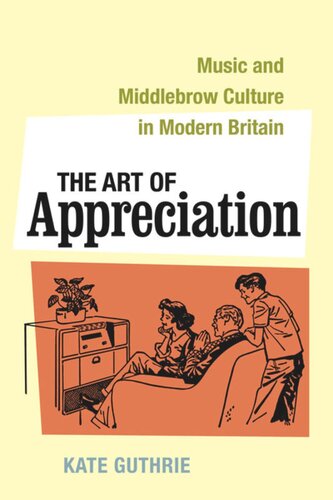

Most ebook files are in PDF format, so you can easily read them using various software such as Foxit Reader or directly on the Google Chrome browser.
Some ebook files are released by publishers in other formats such as .awz, .mobi, .epub, .fb2, etc. You may need to install specific software to read these formats on mobile/PC, such as Calibre.
Please read the tutorial at this link: https://ebookbell.com/faq
We offer FREE conversion to the popular formats you request; however, this may take some time. Therefore, right after payment, please email us, and we will try to provide the service as quickly as possible.
For some exceptional file formats or broken links (if any), please refrain from opening any disputes. Instead, email us first, and we will try to assist within a maximum of 6 hours.
EbookBell Team

4.7
26 reviewsFrom the BBC Proms to Bernstein's Young People's Concerts, initiatives to promote classical music have been a pervasive feature of twentieth-century musical life. The goal of these initiatives was rarely just to reach a larger and more diverse audience but to teach a particular way of listening that would help the public "appreciate" music. This book examines for the first time how and why music appreciation has had such a defining and long-lasting impact—well beyond its roots in late-Victorian liberalism. It traces the networks of music educators, philanthropists, policy-makers, critics, composers, and musicians who, rather than resisting new mass media, sought to harness their pedagogic potential; and explores how listening became embroiled in a nexus of modern problems around citizenship, leisure, and education. In so doing, it ultimately reveals how a new cultural milieu—the middlebrow—emerged at the heart of Britain's experience of modernity.